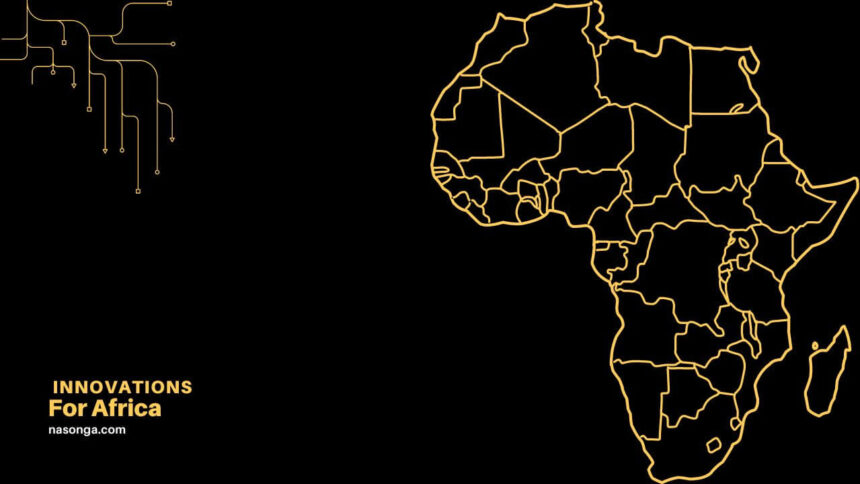Identifying which innovations will have the greatest impact on a continent as vast and varied as Africa can be difficult. However, there are certain areas where African countries lag behind the rest of the world, and it is in these areas that life-changing innovations are most needed. Here are ten such innovations.
List of life-changing innovations Africa needs:
The following are some of the areas that life-changing innovations in Africa would most impact:
1. Improved access to clean water
Climate change is causing water shortages across Africa, and access to clean water is becoming increasingly difficult. This is having a devastating impact on communities, particularly in rural areas.
We need innovative solutions to help African countries cope with water shortages. One such solution is desalination plants to turn seawater into fresh water. This technology is already being used in some parts of Africa, but it is expensive and requires a lot of energy.
Other innovative solutions include the use of rainwater harvesting and greywater recycling.
2. Better sanitation facilities
Approximately 340 million people in Africa lack access to basic sanitation facilities, such as toilets and latrines. This is a major problem, as poor sanitation can lead to the spread of disease.
Innovative solutions are needed to improve sanitation in Africa. One such solution is using mobile toilets that can be easily moved and set up in areas without access to traditional sanitation facilities.
Other solutions include using pit latrines that can be easily constructed and using wastewater treatment plants to recycle sewage water.
3. Renewable energy sources
Much of Africa has the potential to generate renewable energy, but only a small proportion of this potential is currently being exploited. This is due to a lack of investment and the high cost of technology.
The world needs Africa when it comes to renewable energy. The continent has the potential to lead the way in the development of renewable energy sources, such as solar, wind, and hydro.
Innovative financing mechanisms are needed to help Africa unlock its renewable energy potential. Several African countries are leading the way with innovative carbon credits schemes that are helping to finance the development of renewable energy projects.
Emissions trading systems are another way the private sector can invest in renewable energy projects in Africa.
4. Improved healthcare facilities
As the youngest continent, Africa has the highest proportion of children under five. This is a key target group for child health interventions.
However, healthcare facilities in Africa are often inadequate, and many countries do not have the necessary infrastructure to provide basic health services. This hurts child health outcomes.
Innovative solutions are needed to improve healthcare in Africa. The continent could benefit from mobile health clinics bringing basic health services to remote and rural areas.
Other solutions include the use of telemedicine and e-health technologies to improve access to healthcare and the use of vaccines to prevent the spread of disease.
5. Improved education opportunities
With many school-going children in Africa not having access to education, the continent’s future depends on providing quality education for all.
However, traditional educational models are not always effective in African contexts. This is due to several factors, such as the high cost of tuition, the lack of qualified teachers, and the poor quality of infrastructure.
African countries seek to improve access to education through innovative technologies, such as distance learning and e-learning. These technologies can help to lower the cost of tuition and improve the quality of education.
6. Increased agricultural productivity
Twenty-three percent of sub-Saharan Africa’s GDP comes from agriculture. Yet, the sector is often underfunded, and productivity is low. This is due to several factors, such as the lack of access to modern technology, poor infrastructure, and the effects of climate change.
The sector is yet to be fully unlocked, with smallholder farmers accounting for most agricultural production. There is great potential for increased productivity through innovative technologies, such as precision agriculture and drip irrigation.
Better and more skilled technological innovations in farming will increase African agricultural productivity.
7. More efficient transportation systems
For Africa to develop into a first-world continent, it needs efficient transportation systems. This is essential for the movement of people and goods within the continent.
However, Africa’s transportation infrastructure is often inadequate. This is due to a lack of investment and the high cost of construction.
Innovative solutions are needed to improve transportation in Africa. The continent could benefit from the development of high-speed rail networks and the use of electric vehicles.
8. Improved communication infrastructure
To date, some parts of Africa do not have access to the internet or telecommunication services. This limits the opportunities for those living in these areas.
Innovative solutions are needed to improve communication infrastructure in Africa. Many places do not have the necessary infrastructure to support communication networks.
Using satellite technology can be viable for providing communication services to remote areas. This would require a significant investment, but it would positively impact the lives of those living in these areas.
9. Greater access to financial services
Another way to develop Africa is to provide greater access to financial services. This would allow more people to start and grow businesses, creating jobs and spurring economic growth.
Mobile money and other innovative technologies can achieve greater access to financial services. These solutions can help reduce transaction fees and make it easier for people to access banking services.
Mobile money and Fintech solutions can help to develop Africa by providing greater access to financial services. Exploring cryptocurrency’s decentralization for cross-border payments could also spur economic growth.
10. Better governance structures
There are 54 sovereign countries in Africa, each with its government. The effectiveness of these governments plays a significant role in the continent’s development.
African countries often face challenges with governance, such as corruption, nepotism, and violence. These issues can hamper development and lead to economic decline.
There is a need for better governance structures in Africa. This can be achieved through implementing democratic reforms and the fight against corruption.
Elsewhere in the world, regional blocks such as the European Union and the Association of Southeast Asian Nations have effectively promoted economic development. Africa could learn from these examples and strengthen similar blocs.
While there are many challenges that Africa faces, there are also many opportunities for positive change. By investing in life-changing innovations, African countries can improve the lives of their citizens and build a better future for all.













